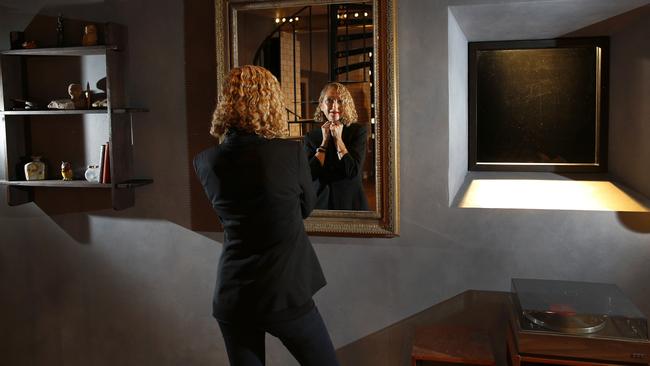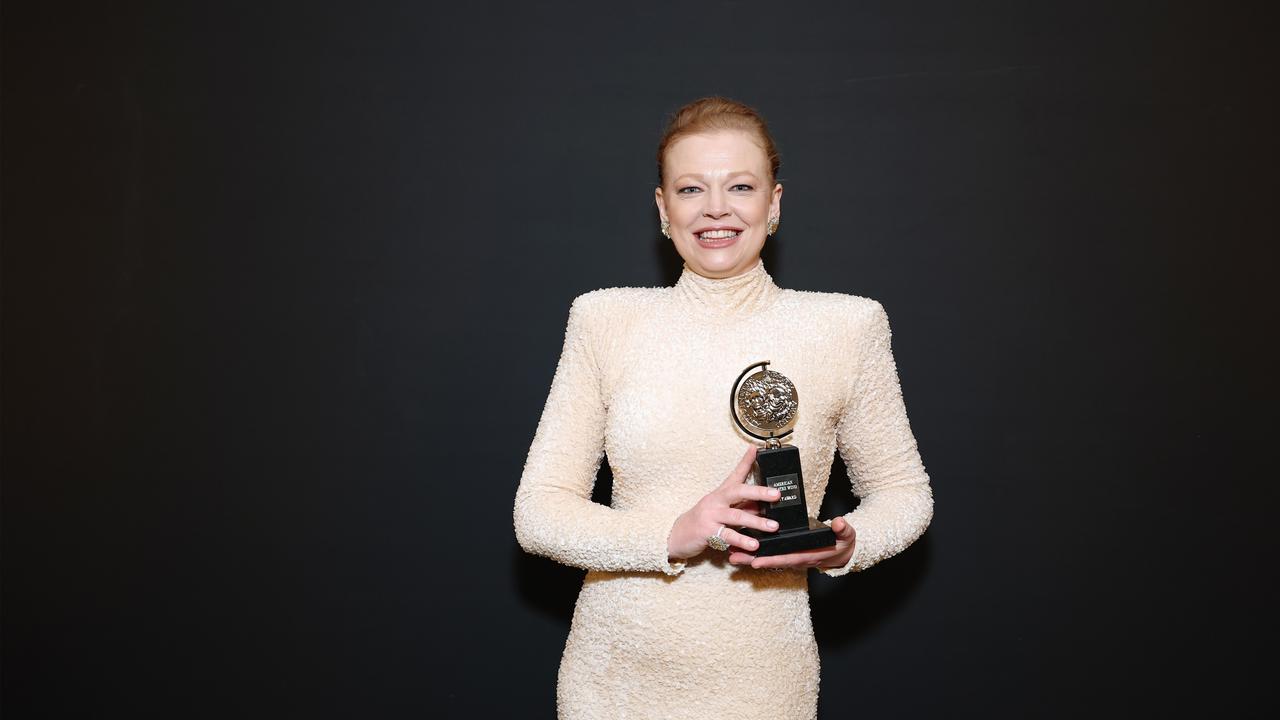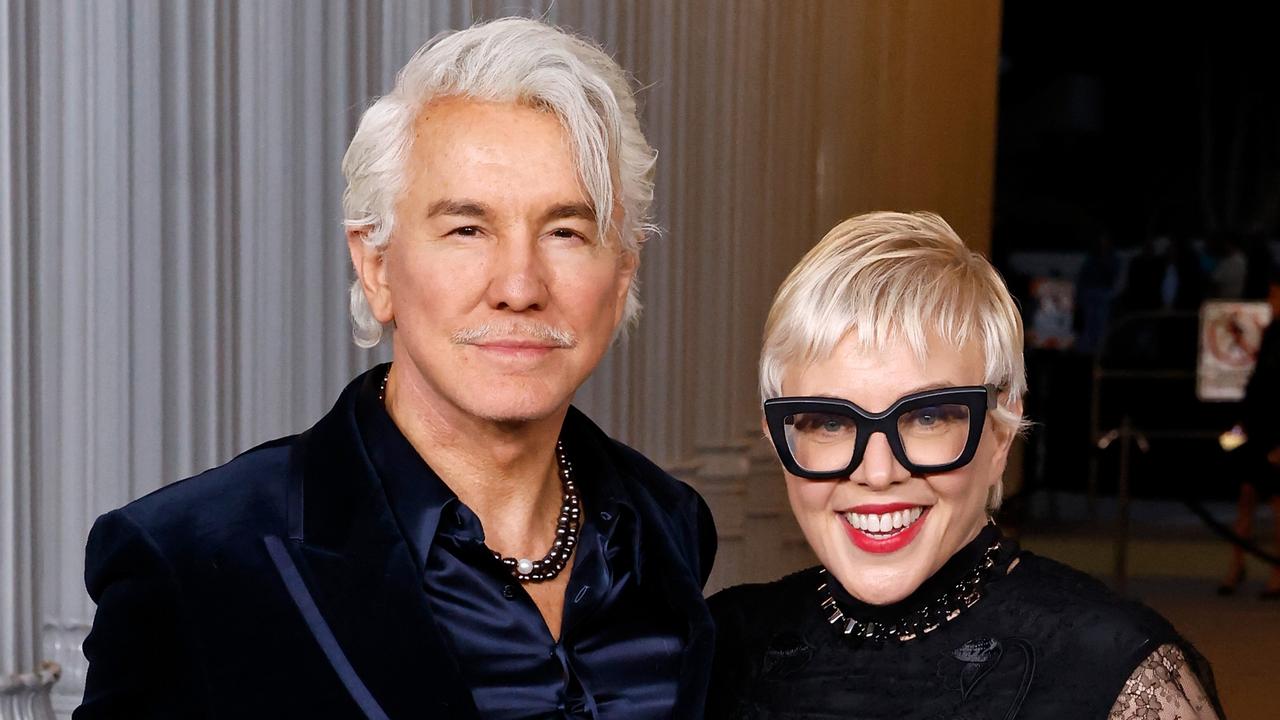Joanna Murray-Smith portrays Highsmith superbly in her play Switzerland
JOANNA Murray-Smith’s Patricia Highsmith is a superb homage to the writer of The Talented Mr Ripley.

YOU wonder if Joanna Murray-Smith was always heading towards Patricia Highsmith.
The Melbourne playwright has been intensely aware of a world elsewhere for some time. Plays such as Honour or The Female of the Species (the one about the big-time feminist bailed up by the girl with the gun) had deliberately interchangeable settings: British, Australian or what you will.
And her women have been played by British theatre dames such as Diana Rigg and Eileen Atkins and in the US by Annette Bening, a particular favourite of the playwright.
Well, Highsmith crossed worlds, this gay, notably unfestive creator of Mr Ripley who was born in Texas and spent her last years in Switzerland, that annex to the idea of Europe.
As much as any crime writer who lived — unless you include Dostoevsky and Dickens — and far more than any other woman in the field, Highsmith is the platonic ideal of the thriller writer who is also an artist.
It was Graham Greene, no mean hand himself at the combination of page-turner and art, who wrote of her: “Miss Highsmith is a crime novelist whose books one can reread many times. There are very few of whom one can say that. She is a writer who has created a world of her own … this is a world without moral endings … Nothing is certain when we have crossed this frontier … It is not the world as we once believed we knew it but it is frighteningly more real to us than the house next door.
“Actions are sudden and impromptu and the motive sometimes so inexplicable that we simply have to accept them on trust. I believe because it is impossible. Her characters are irrational, they leap to life in their very lack of reason: suddenly we realise how unbelievably rational most fictional characters are.”
If you read between the lines — and part of Greene’s intention is to indicate the darkness and danger, the devil-be-damned thrill of Highsmith — this is praise of the highest kind. The creator of Brighton Rock and The Heart of the Matter is proffering this lesbian spine-chiller as at that supreme thing, a teller of truth through the medium of words, never mind the lurid package.
And, God knows, the wrapping the writer came in is as vivid and haunting as any spectral face looming in its whiteness from the dark of a cupboard. Read at random from Joan Schenkar’s The Talented Miss Highsmith and you come across things such as this, on page 341: “Life for Pat was always a matter of entering into another character. ‘Happiness,’ she wrote, ‘is a matter of imagination … we’re all suicides under the skin’ … In her cottage in the woods … Pat, like her protagonist, Ripley, was both giving a performance and watching: turning herself a theatre of one.”
There is even an uncanny reference to the fact “her French editor Alain Oulman was disturbed by the fact that she occasionally spoke of Ripley as though he were ‘real’, or at least susceptible to insult. But Pat could usually be counted upon to unsettle her friends.”
All of which feeds into Murray-Smith’s remarkable new play Switzerland — debuting in a Sydney Theatre Company production tomorrow, commissioned by Los Angeles’ Geffen Playhouse — and so does the weird affectless tonal grandeur of Highsmith’s fiction. Open up Ripley’s Game, the last book in the handsome Everyman omnibus of Ripley stories (though not the last one Highsmith wrote, which was Ripley Under Water) and you are stopped dead by the ease with which the idea of murder glides through the mind like a routine ritual: “Now Reeves wanted Tom to provide someone, suggest someone to do one or two ‘simple murders’ and perhaps one theft, also safe and simple.”
Romance and reality and their interface: what material, like poison, to pour into a play — and in Murray-Smith’s hands the effect is extraordinary. I read Switzerland, this text for two actors, an older woman and a young man, and a world of fading grandeur and nightmare possibilities rose up before me. I saw the faces — Bening and James Franco as the young publisher’s representative who comes to see her; or in the Sydney Theatre Company production, Sarah Peirse and Eamon Farren.
For my money this is far and away the finest thing Murray-Smith has written and it’s easy to imagine how Switzerland will burn up the stages of the world for years to come. And if I were Bening, I would clear the biggest space to do it on the New York stage and do my damnedest to do it on screen as well.
What a story-line. Highsmith is there in her Switzerland retreat when a young man comes to her from her publishers, eager for her to sign a contract and knock off yet another Ripley, even though it’s clear that the light is falling for Highsmith. And even though she has plenty of spirit, this is the last lap of the long race into darkness.
She is a grand dame; you can hear the sharpness of the consonants, the cultivation of the voice of the consciously cosmopolitan woman who has turned her back on the vulgarities of an America that has formed her every stab and sneer. He is, to begin with, all passive pant and dutiful timidity.
Then something happens. It’s a kind of pas de deux, though this coming together — which has the swish and lure of sex and the heart-stopping surprise of seduction — is as perverse as high-grade steel against skin. Somehow this young man and this old woman glide into another world. It’s world of possibilities that are full of something like danger though they also buzz with humour and mockery and banter.
There’s a running joke — though it darkens — that evokes the inanity and euphoria of the song Happy Talk from South Pacific. There’s also a sharply dramatic moment when the crime dominatrix and the tame stranger sing in duet Bewitched, Bothered and Bewildered as if there were no tomorrow.
Well, is there? One of the thrilling aspects of Switzerland — and this is a play so Hitchcockian in its logic that you wish Roman Polanski would film it in a reprise of his early knife-edge manner — is when the ruined old broad and the subtler-than-he-looks young man start to improvise a story to each other, a very intriguing homage to the kind of story Highsmith made famous.
Somehow it seems that the idea of Highsmith, the woman who gave Hitchcock that most sinister study of homoerotic obsession, Strangers in a Train, has released something in Murray-Smith. The preoccupation with celebrity, the sense of looming persona, even the inexplicable desire to be on the biggest stages and screens the world contains — all of this is transfigured in Switzerland.
This is a dexterous, brilliant piece of theatre. A pitch-perfect homage to Highsmith that is at the same time a superb piece of dramatic writing and manifestly a vehicle for two actors of the first rank who also have an appropriate degree of magnetism.
They don’t have to be stars, but if they do justice to this play they’ll look like them.
Cate Blanchett could have done worse than to take on the role of Highsmith if she wanted to indicate she could do an older role, and it will be fascinating to see who plays Murray-Smith’s Highsmith and her Man Friday when this play is seen, as it bound to be, on the world’s great stages.


